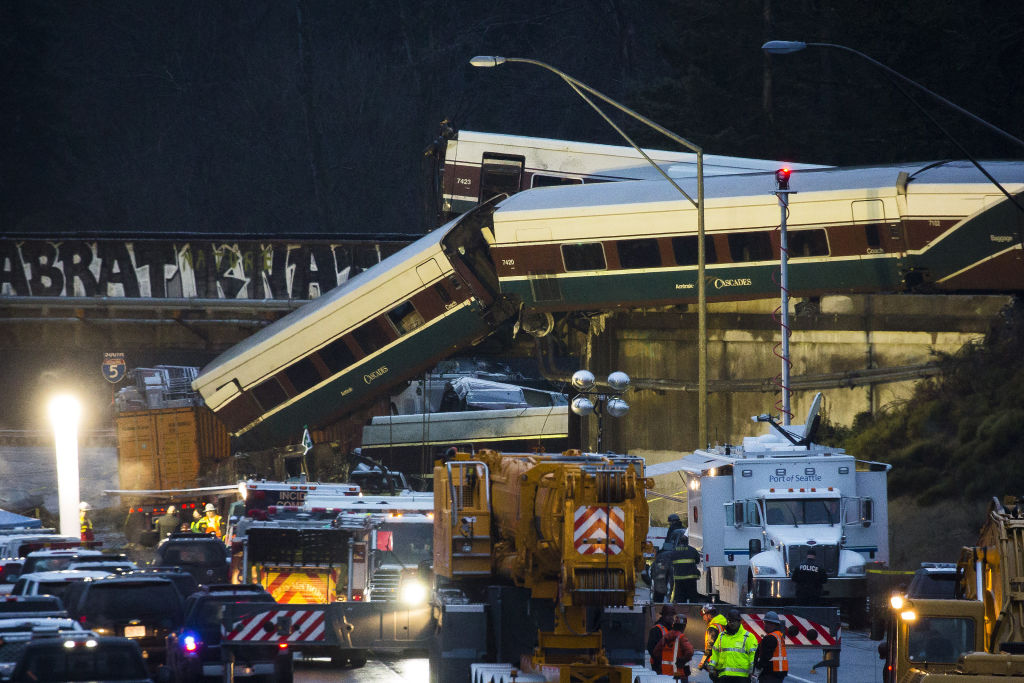

We may earn revenue from the products available on this page and participate in affiliate programs. Learn more ›
The train that derailed south of Seattle almost two weeks ago, killing three people, was traveling on a new bypass route paid for with billions in federal funding that came with a schedule.
“All of the transportation money in the bill had use-it-or-lose-it deadlines. The high-speed and intercity passenger rail money had the longest deadline, but all of the $8 billion had to be obligated,” writes Jeff Davis, a policy expert with the Eno Center for Transportation in D.C. “Washington State had to spend every dime of the money (outlays and reimbursement, not just signing contracts) for the route before September 30, 2017.”
The funding, which came from 2009 stimulus meant to be spent quickly, “explains why Washington State was in such a hurry to complete construction,” said Davis.
Less clear is why Amtrak and Washington state transportation officials opted to start the service before Sound Transit had finished installing Positive Train Control, or PTC, an automatic braking system, which is scheduled to be finishing in the first half of 2018.
Sound Transit owns the tracks, known as the Point Defiant Bypass, while Amtrak oversaw day-to-day operations as a contractor for The Washington State Department of Transportation and the Oregon Department of Transportation, which jointly own the Amtrak Cascades train service.
While the cause of the derailment is under investigation, the train’s failure to slow down as it rounded the bypass is viewed as a likely culprit.
Four days after the derailment, Amtrak President and CEO Richard Anderson took a defensive stance on PTC.
“Amtrak has been a committed PTC leader – prioritizing, completing and activating installation across the parts of the network that we control even as others in the industry have opposed the PTC mandate and worked to delay it, he stated, adding: “It is imperative that the rail industry urgently work together to get PTC activated on the national network as soon as possible – and certainly by the December 2018 federal deadline, if not before.”
PTC must be implemented on most U.S. tracks, including the Point Defiant Bypass, by the end of next year, according to a federal mandate, which has been postponed before.
